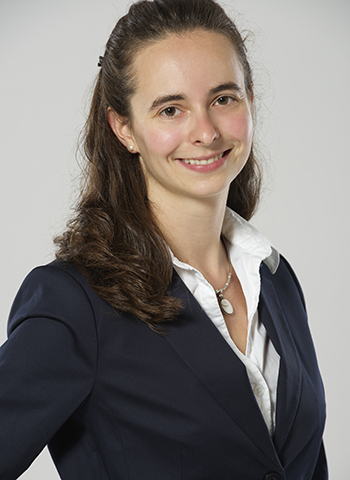 Short biography
Short biography
Dr Maria Patra joined the IMPRS-LS program in 2010 after completing a Master’s program in Biochemistry at the TUM. She was working at the Adolf Butenandt Institute of the LMU in the lab of Prof Dr Jörg Tatzelt and Prof Dr Konstanze Winklhofer, where she completed her PhD thesis titled “Effects of Parkin and mutant Huntingtin on the NF-kB signaling pathway” in 2015. Maria now works as a research scientist for the biotech company MorphoSys, based in Martinsried, Munich.
Why did you choose to do your PhD with IMPRS?
The international aspect of IMPRS sounded very appealing to me, as you gain access to an excellent worldwide scientific network by being a member of this exceptional PhD program. IMPRS not only provides insights into different institutes and scientific fields based in Munich, but also different cultures from all over the world. I greatly enjoyed this colorful bouquet of inspiration possibilities within the last few years - both on a professional as well as on a personal level.
Why did you choose Munich and what did you find to be the best aspects of studying at the LMU?
During my Master’s program at the Technical University Munich, I already experienced that Munich holds huge potential for fruitful collaborations and exchanging ideas with experts from various research fields. Therefore, I decided to stay here and deepen my research activities in this promising surrounding.
As I was interested to do my PhD in Neuroscience and concentrate on neurodegenerative diseases in particular, one group at the LMU offered the most compelling research topic to me. Furthermore, the institute I chose, was also integrated in many other research alliances, which complemented the scientific network provided by IMPRS.
After completing your PhD you made the decision to move from academia to industry. Why did you decide to switch and how did the IMPRS-LS help with preparing you for your career in industry?
During my PhD, I was able to participate in many helpful workshops funded by IMPRS, which all contributed to my personal development. The workshop which contributed most to my current career focused on career mentoring: We did not only get input from a highly proficient trainer, but also learned from valuable experiences shared by other IMPRS students. As the trainer was already familiar with the participants from previous workshops, the consulting regarding career chances was taking place not only on a professional, but also on a personal level. In general, I consider this to be a very unusual but extremely positive aspect that IMPRS is interested in and takes care of their students’ future opportunities after the PhD.
What advice would you give to students considering studying here?
If you want to be part of an excellent academic network, get to know not only talented PhD colleagues, but even find life-long friends, deepen your scientific and personal development during your PhD as well as receive comprehensive support from the IMPRS coordinators whenever difficulties arise, I would highly recommend you to apply for this intriguing PhD program.
